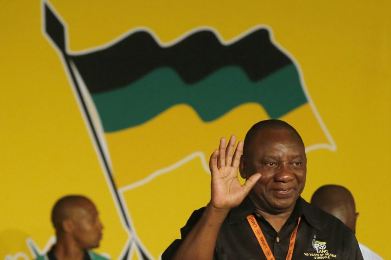South African ANC officials in Juba to educate SPLM
October 9, 2013 (JUBA) – A high-level delegation comprising of senior officials from South Africa’s ruling African National Congress (ANC) have arrived in South Sudan to share their knowledge and experience with the Sudan People’s Liberation Movement (SPLM) amidst an ongoing power struggle within the ruling party.

The visit takes place as the SPLM national liberation council prepares to hold its first meeting on 22 October to discuss vital challenges related to the vision and structure of the ruling party.
In a statement to the press at Juba airport, Itto said the ANC officials came to share their experiences with the SPLM on various issues.
ANC has a track record of making successful transitions of leadership, with the latest example occurring when former South African president Thabo Mbeki peacefully and democratically relinquished his power to current president Jacob Zuma.
A guerilla movement turned into a political party in 2005, the SPLM is widely considered to lack experience in democratic transformation and transition.
Its senior leadership has also been accused of stalling attempts to introduce a peaceful and democratic transition of power.
The party remains unregistered in the new nation and has yet to pass its constitution, manifesto, code of conduct and rules and regulations, which are required in order to conform to the realities of the new independent state.
South Sudan’s president, Salva Kiir Mayardit, has chaired the SPLM for the last eight years since taking power by default in 2005 following the untimely demise of the movement’s founder, John Garang de Mabior.
Kiir was confirmed as the party chairman in the 2008 national convention along with his deputies.
However, the SPLM has unsuccessfully stuck with the transformational and transitional processes since March this year, following revelations that a number of senior party officials wanted Kiir replaced.
One of those senior leaders who expressed readiness to replace Kiir was the party’s first vice chairman, Riek Machar Teny, who served as the president’s deputy for eight years before being relieved in July.
Others who also saw the need to replace the current chairman included the party’s secretary-general, Pagan Amum, who was suspended after publicly criticising the government, as well as Garang’s widow Rebecca Nyandeng de Mabior, a member of the party’s political bureau and former presidential advisor.
In an SPLM political bureau meeting in March, Kiir reportedly acknowledged the existence of challenges such corruption, tribalism, a stagnant economy, insecurity and poor international relations.
However, he stressed he needed a third chance as party chairman and president of the republic to try to tackle ongoing issues facing the new nation.
Since March the ruling party has failed to hold further meetings, as well as make the necessary preparations for passing its basic documents needed to hold its third national convention, which was due to be held last May, in accordance with the five-year timetable.
As the 2015 general elections approach, the SPLM is supposed to confirm or elect its new leadership, including the position of chairman, who will be the flag bearer for the presidential race come the election year.
While Kiir seems determined to hold on power, Machar and his supporters have vowed to democratically unseat the incumbent from the party chairmanship and the government’s top seat by 2015.
(ST)
